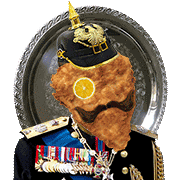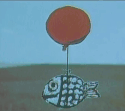|
Cyrano4747 posted:I mean, if we're talking about the Royalty there's the whole "Cousin Nicky" thing as a result of Victoria having a thing for German dudes and being very good at flogging off her kids as spouses. Deffo, but Yekaterina had no small role in bringing more Germans to Russian empire in a way that Sachsen-Coburg und Gothas never managed. Unfortunately. quote:Czarina Catherine II was German, born in Stettin in Pomerania (now Szczecin in Poland). After gaining her power, she proclaimed open immigration for foreigners wishing to live in the Russian Empire on 22 July 1763, marking the beginning of a wave of German migration to the Empire. She wanted German farmers to redevelop farmland that had been fallow after conflict with the Ottomans. German colonies were founded in the lower Volga river area almost immediately afterward. These early colonies were attacked during the Pugachev uprising, which was centred on the Volga area, but they survived the rebellion.
|
|
|
|

|
| # ? May 8, 2024 02:22 |
|
I’d like to learn more about US Colored Troops during/after the ACW. Did all units have white officers? What about NCO’s? Were they generally used as garrison/second line troops or combat troops? I know they were used as combat troops at the crater at Petersburg and at Fort Wagner with very different results-were those the exception or more usual? Any idea about how many former slaves served in the Union army during the war? I know a lot of USCT were involved in the occupation of the south after the war-were they pretty quickly mustered out as their enlistments expired and replaced with white soldiers or were they kept on? Any memoirs or letters from former USCT? If there’s a good book/podcast/YouTube etc on the subject I’d love any recommendations! I’m a bit more interested in the social history and individual experiences than ‘the 14 USCT was attached to general Thomas’ corps at XYZ in April 1864…’
|
|
|
|
SerCypher posted:You could argue that the reforms the Qing army made after the second opium war were dramatic and sweeping. Yeah, Qing modernization only looked unsuccessful because Japan was -more- successful at it and defeated the Qing in the first Sino-Japanese War the newly modernized army then turned on the dynasty in 1911: ironically it was the -success- of modernization which destroyed the dynasty. The key institution which overthrew the dynasty (the Beiyang army) only existed for 16 years. the real reason for China's weakness for the first half of the 20th century wasn't so much technological backwardness as it was political collapse after the fall of the dynasty and Yuan Shikai's bungled attempt at making himself the new emperor Tulip posted:Which is of course why the Qing stumbled so frequently and harshly with their later military reforms: the people in charge of the country understood that a modern military would lead to them losing privileges and power. In hindsight the best option for everyone would to have being if the Qing emperors voluntarily relegate themselves to a figurehead role on the model of British constitutional monarchy when they saw the writing on the wall by 1900 or so Typo fucked around with this message at 15:28 on May 5, 2023 |
|
|
|
Kaiser Schnitzel posted:I’d like to learn more about US Colored Troops during/after the ACW. Did all units have white officers? What about NCO’s? Regarding this part, there were no black commissioned officers. To be a commissioned officer in the US army, you had to graduate from West Point, The first black commissioned officer was Henry Flipper, who became an officer in 1877, and fought in the Indian Wars until he was accused of embezzlement (almost certainly framed by white officers who didn't think blacks belonged as officers), court martialed and dishonorably discharged. Because of pressure by his descendants,, the case was reopened in the 1990s, and the army investigators concluded that the charges and punishment were harsh and unjust. He was posthumously given an honorable discharge, and pardoned by President Clinton. There were black NCOs.
|
|
|
|
Kaiser Schnitzel posted:I’d like to learn more about US Colored Troops during/after the ACW. Did all units have white officers? What about NCO’s? Were they generally used as garrison/second line troops or combat troops? I know they were used as combat troops at the crater at Petersburg and at Fort Wagner with very different results-were those the exception or more usual? Any idea about how many former slaves served in the Union army during the war? I know a lot of USCT were involved in the occupation of the south after the war-were they pretty quickly mustered out as their enlistments expired and replaced with white soldiers or were they kept on? Any memoirs or letters from former USCT? Not an expert but from what I know from studying the ACW: 1) Though not all officers where white, black officers where very rare exceptions and usually confined to non command roles. The only account of black officers in line units I have come across where early contraband units raised in New Orleans in the early days of the war. When USCT regiments where formally organized by the War Department in 1863, it was supposed to be white officers leading only. NCOs were black. I do not know of white NCOs serving in USCT units though my knowledge is far from complete. 2) Most USCT units were used as rear area soldiers. Digging fortifications, patrolling supply lines, and manning forts. They purpose was primarily to free up white units to fight although it was not exceptional for them to see front line service. Their performance was generally regarded as good though nothing exceptional vis a vis white troops. There are written accounts of from white troops which indicate that respect was well earned once those units entered combat. 3) Former slaves where almost immediately put to work by the Federal units as teamsters, grave diggers, and cooks. They mainly served as civilians until colored regiments were formalized. I cannot recommend much as I don't study this niche aspect of the war but a primary source written by a USCT soldier is free on Amazon. Look up "The Black Phalanx". I have read parts of it. The writing style is old but it is a first hand account. Be aware the N word is used if that kinda thing bothers you. Modern literature has several books in recent years but I haven't read it. MikeC fucked around with this message at 17:55 on May 5, 2023 |
|
|
|
Epicurius posted:To be a commissioned officer in the US army, you had to graduate from West Point, No, incorrect, sorry. Tens of thousands of officers were commissioned by State armies without ever setting foot in West Point. A prominent citizen would be commissioned, usually to raise a Regiment (i.e., "20th Maine" or "2nd Wisconsin") and they would in turn appoint commissioned officers within that regiment. These commissions were less formal; early on in the war officers were often chosen by vote. Officers commissioned by states had their rank denoted by the term "of volunteers." Just to make things confusing these officers - and their regiments - could be and often were "federalized," that is, put into a Corps under the command of generals of the Regular Army. In this case the state commissioned officers would be given a commission in the Regular army at a lower rank. Thus someone could be a (for example) "Major of Volunteers" and a "Captain, USA." (And to be extra confusing, officers were often given "brevet" ranks. This was a temporary promotion to fill a higher billet (role, job) until the paperwork for the promotion went through. Thus in theory it was possible to hold four ranks at once - a Regular army (USA) commissioned rank, a Regular Army billet rank, a State ("of Volunteers") rank, and a State Army billet. Noted rear end in a top hat Custer, for example, was a brevet Major General of Volunteers, a brevet Brigadier General USA (Regular Army), and a Lt. Colonel in the Regular Army at the war's end.) Epicurius posted:Regarding this part, there were no black commissioned officers. This is incorrect also. The same system of commissions from States made it possible for Black people to be commissioned by those states. Generally this wasn't done to put them in a leadership position, but to give them rank appropriate for a special skill or job within the army, like as a scout or even as a spy - or, for that matter, to do crappy jobs like leading working parties when they dug ditches. This wasn't common, to be sure, but it happened; the US recognizes 80 Black Americans commissioned during the war link.
|
|
|
Kaiser Schnitzel posted:I’d like to learn more about US Colored Troops during/after the ACW. Did all units have white officers? What about NCO’s? Were they generally used as garrison/second line troops or combat troops? I know they were used as combat troops at the crater at Petersburg and at Fort Wagner with very different results-were those the exception or more usual? Any idea about how many former slaves served in the Union army during the war? I know a lot of USCT were involved in the occupation of the south after the war-were they pretty quickly mustered out as their enlistments expired and replaced with white soldiers or were they kept on? Any memoirs or letters from former USCT? I think the figure was something like a hundred thousand actual USCT soldiers, although there were many more 'contrabands' than that. While responses varied I think Union forces in camp (which was a lot of the time) were usually pretty glad to see them, both for the "gently caress the rebs" factor and because they could stick the escapees with fatigue duty.
|
|
|
|
|
What is the “furthest” that someone’s ever been breveted? As in in terms of height on the hierarchy raised, either absolute (i.e. final rank) or relative (e.g. number of branching mother nodes traversed).
|
|
|
|
Xiahou Dun posted:What is the “furthest” that someone’s ever been breveted? As in in terms of height on the hierarchy raised, either absolute (i.e. final rank) or relative (e.g. number of branching mother nodes traversed). You could probably figure it out with this wikipedia list. Just a quick glance shows several entries who were Captains breveted to Brigadier General, which, wow.
|
|
|
|
That reminds me, in this, the best clip of dude being dressed down in history, they refer to "gazetting", is that similar to breveting or just a straight up promotion. Most of the stuff I could find about the term referred to naval ships being mentioned in official journals. https://www.youtube.com/watch?v=onBZBAHB_ws
|
|
|
|
Before the emancipation proclamation, was the army required to send escaped slaves back to their masters?
|
|
|
|
VostokProgram posted:Before the emancipation proclamation, was the army required to send escaped slaves back to their masters? no, congress declared escaped slaves to be contrabands: basically captured enemy property and no longer belonging to their previous masters very early in the war. Union armies in the south would have camps of escaped slaves formed around them and were paid wages as laborers by the army. the treatment of said escaped slaves varied: some generals like Butler treated them fairly well, others not so much
|
|
|
|
Typo posted:In hindsight the best option for everyone would to have being if the Qing emperors voluntarily relegate themselves to a figurehead role on the model of British constitutional monarchy when they saw the writing on the wall by 1900 or so this is gay black Hitler territory to be fair though. The Qing at this point would not have been capable of stable reforms if they even had the will.
|
|
|
|
Typo posted:Yeah, Qing modernization only looked unsuccessful because Japan was -more- successful at it and defeated the Qing in the first Sino-Japanese War The thing is they already were in a figurehead role. 
|
|
|
|
Typo posted:no, congress declared escaped slaves to be contrabands: basically captured enemy property and no longer belonging to their previous masters very early in the war. Union armies in the south would have camps of escaped slaves formed around them and were paid wages as laborers by the army. Yeah Butler raised a few regiments in New Orleans and they had black officers but Banks was turbo-racist and he got rid of (most but not all) of them when he took them out on campaign and then got a bunch of the remaining ones killed during his frontal assaults on the rebels at Port Hudson.
|
|
|
|
Lady Radia posted:this is gay black Hitler territory to be fair though. The Qing at this point would not have been capable of stable reforms if they even had the will. Yes, the fragmentation of power out to local leaders saved the Dynasty from the Taiping Uprising (and others). However it also basically turned China into a confederation of provinces rather than a single state. Any central order the local proto-warlords didn't like, they just ignored. You can see this pretty clearly during the Boxer Uprising, the court called for troops all over China to expel the foreigners, but aside from local forces around Beijing, they all ignored it.
|
|
|
|
Cessna posted:This wasn't common, to be sure, but it happened; the US recognizes 80 Black Americans commissioned during the war link. Thanks that link and everyone's posts were super helpful!
|
|
|
|
zoux posted:That reminds me, in this, the best clip of dude being dressed down in history, they refer to "gazetting", is that similar to breveting or just a straight up promotion. Most of the stuff I could find about the term referred to naval ships being mentioned in official journals. "Gazetted" is just slang (or, really, slang that became a professional term) for promotion. Since the 17th century the London Gazette has been the official journal of record for British government and court affairs, so such things are generally regarded as not having official weight until they appear there. So while an officer's overall seniority starts from the date of their commission, their time in a given rank starts when it was announced in the Gazette. This also applied to temporary or field promotions - if they were sanctioned by the required high-level authority then the promotion would appear in the Gazette and they had been 'gazetted' - confirmed in their rank. This was especially relevant to officers stationed abroad and naval officers on distant stations or long voyages, because their immediate seniors could promote them to local or acting ranks, but they had to be confirmed by the War Office or the Admiralty, and it could take several months for the paperwork to make its way to and through the official channels. But once it appeared in the Gazette it was official.
|
|
|
|
VostokProgram posted:Before the emancipation proclamation, was the army required to send escaped slaves back to their masters? At the very very beginning of the war this was what was expected, yes, but it quickly became obvious to even the least militarily-skilled US generals it would be stupid to do so. The Fugitive Slave Law was a dead letter inside of about two months. Credit for killing this idea dead goes to Benjamin Butler, a political general placed in charge of the garrison at Fort Monroe, Virginia. Fort Monroe is across the Chesapeake Bay from Norfolk, a city with a major naval base that had fallen into Confederate hands and the rebels were busy fortifying the area using slave labor, because why should a Virginia planter gentleman get his hands dirty? Three slaves escaped to Fort Monroe in a small boat and provided Butler with information on the rebel fortifications. Then the slaves' owner, a Confederate Colonel named Mallory, sent a fellow officer over to retrieve them. Because before Fort Sumter it was the law that Yankees had to give each Dixie boy his chattel back if they escaped north. Why should a little matter of treason change that? Butler was a prominent Boston lawyer and had, as a consequence, been reading up on military law ever since being commissioned as a general. I'll leave describing the subsequent events to General Butler himself: Benjamin Butler's memoirs posted:"I am informed," said Major Carey, "that three negroes belonging to Colonel Mallory have escaped within your lines. I am Colonel Mallory’s agent and have charge of his property. What do you mean to do with those negroes?"
|
|
|
|
An interesting formerly secret conference document on tactical nuclear war from 1969. https://www.osti.gov/opennet/servlets/purl/1018707.pdf The best stuff imo is from around page 150 
|
|
|
|
https://www.youtube.com/watch?v=33AL7xs91pU More experimental archaeology from Todd Cutler. This time with a pilum against mail that he made. Impressive penetration even through a shield. Managed to stick a head through a shield and into a body protected by mail and some sort of padding underneath. Its one thing to read about the efficacy of ancient weapons, its another to watch it punch through reproduction armor that was similar to the real thing.
|
|
|
|
Chainmail must be tedious as hell to make.
|
|
|
|
Saul Kain posted:Chainmail must be tedious as hell to make. Extremely.
|
|
|
|
You also have to pay constant attention so you don't mesh it up!
|
|
|
|
MikeC posted:https://www.youtube.com/watch?v=33AL7xs91pU Does any one actually think mail has a chance of stopping anything like a spear or arrows? The phrase "when it comes to arrows, chain-mail is just a lot of holes held together by wire" has been around for a long time. I can remember some viking reenactors in 03 talking about talking about the use of mail and how it was used to protect against glancing strikes from swords/axes/spears, any serious hit would still mess you up (these were people swinging daneaxes against each others shields).
|
|
|
|
Foxtrot_13 posted:Does any one actually think mail has a chance of stopping anything like a spear or arrows? Literally everyone who studies this poo poo for a living, yes. Mail wouldn't have been so common if it didn't work.
|
|
|
|
Foxtrot_13 posted:Does any one actually think mail has a chance of stopping anything like a spear or arrows? If someone is standing 10' from you with a longbow and shoots you then you'll probably have a bad time, sure. This isn't the usual use case.
|
|
|
|
Cythereal posted:Literally everyone who studies this poo poo for a living, yes. Mail wouldn’t have been as common if making larger plates of iron weren’t so much more difficult
|
|
|
|
Scratch Monkey posted:Mail wouldn’t have been as common if making larger plates of iron weren’t so much more difficult ??? And?
|
|
|
|
The experimental work on maille demonstrates that a direct hit from stiff pokey things basically ignore it, but that they continued to make it at that high labour is imo good evidence that lots of perceived harm in combat came from cutty things or glancing blows.
|
|
|
|
Scratch Monkey posted:Mail wouldn’t have been as common if making larger plates of iron weren’t so much more difficult The question wasn't whether there are better armor in existence, it's about whether mail was worth manufacturing. Judging by how much resources was spent on it apparently it was.
|
|
|
|
Armor can still be worth it even if it cant stop a javelin. Much like today, really.
|
|
|
|
Xakura posted:Armor can still be worth it even if it cant stop a javelin. Rule #5 of SA milhist thread: it always goes back to tankchat.
|
|
|
|
Foxtrot_13 posted:Does any one actually think mail has a chance of stopping anything like a spear or arrows? Properly made mail using rivets instead of inaccurate modern-day butted mail cheap reproduction is very good at stopping hand-held melee weapons. You can't possibly stab or slash your way through it with an edged or pointed weapon and it was good enough to stop most missiles that did not have an arrowhead dedicated punch through it. Something like a broad head used for hunting for example would have too much width and spread the force out across too many links for the arrow to force its way past the links. The reason why needle head bodkins existed was to have the head narrow enough for the possibility of jamming open and busting open the rivet of an individual ring and passing on into the under armour and flesh. When people have to combo difficult-to-draw, high-poundage bows, with specialized arrowheads when more standard broadheads would defeat fabric/linen armor and cause more damage to the body underneath just to get past mail, you know it's effective. https://www.youtube.com/watch?v=Uoz0eggQen8 This video from Todd sometime ago was demonstrative of the efficacy. To combat heavy arrows with narrow arrowheads designed for mail penetration fired from high-poundage war bows, they made composite armor layer gambeson underneath the mail to stop blunted heads that made it past the mail. Once again Cutler's field testing is invaluable https://www.youtube.com/watch?v=5iBWI7Q7LVI So while you can defeat mail if you really tried hard, the general efficacy of mail in ancient-era combat is absolutely not in question. You simply cannot slice through with a sword and you can't stab your way through it with a standard spear or sword at length. You would need some sort of specialized weapon to defeat it like a dedicated rondel dagger. One very old video and a more recent Cutler video https://www.youtube.com/watch?v=xw3lcgIAwLk (there are dozens of videos like this one showing just how impractical trying to get past mail with standard, edged weapon weapons is). https://www.youtube.com/watch?v=7iU3q23jGX0 Now, the man underneath would still suffer all the damage from general blunt force trauma and you would be left with bruised flesh and cracked/broken bones but wearing mail and padding underneath generally prevents you from having metal objects implanted inside your body so while you may suffer incapacitation, you aren't going to just die from metal objects protruding from your body. Experimental archaeology is super valuable in examples like this to get a measure of what worked and what didn't. MikeC fucked around with this message at 15:26 on May 7, 2023 |
|
|
|
I want to see him test maille and other armor against pikes, lances, or other heavy thrusting polearms. I suspect the pike will be similar to the rondel dagger on a good connection, and that a proper lance strike at spees will even be lethal against plate. Really difficult and costly to set up those tests though.
|
|
|
|
The lorica hamata type of mail was tedious to make, but it's the sort of tedious repetitive work you can farm out to teams of slaves. It's not insurmountably difficult to produce.
|
|
|
|
CommonShore posted:I want to see him test maille and other armor against pikes, lances, or other heavy thrusting polearms. I suspect the pike will be similar to the rondel dagger on a good connection, and that a proper lance strike at spees will even be lethal against plate. I don't have a great feeling for the amount of force involved in lance hits, but I feel like getting hit by a wooden pole moving at 20MPH or so is probably going to take you out for months, even if it doesn't necessarily impale you. Saul Kain posted:Chainmail must be tedious as hell to make. Speaking from experience: it's kind of zen, like knitting. But yes, it does take a long time, and even longer if you're riveting the rings.
|
|
|
|
Valtonen posted:Rule #5 of SA milhist thread: it always goes back to tankchat. A pilum is a tank destroyer.
|
|
|
|
Fangz posted:The lorica hamata type of mail was tedious to make, but it's the sort of tedious repetitive work you can farm out to teams of slaves. It's not insurmountably difficult to produce. It also has a really, really critical advantage from a labor perspective: maintenance and repair. Cleaning some mail is basically you drop it in some sand and rub it around, and fixing chainmail is literally just weaving in some new rings. And of course those rings are just wire, so the logistics of replacement materials is incredibly simple. Compared this to stuff like segmentata, which requires having many different sizes of plates in your supply train, and is much more difficult to clean or repair. Where I'm going with this is that, even if chainmail is the same or more labor intensive than competing armor forms over its lifespan, a huge percentage of that labor is loaded into the initial manufacturing and away from anything you'd have to do on campaign, where the labor is going to be a lot more sharply limited.
|
|
|
|

|
| # ? May 8, 2024 02:22 |
|
SerCypher posted:You could argue that the reforms the Qing army made after the second opium war were dramatic and sweeping. The qing dynasty almost lost to a bunch of disorganized religious peasants in the boxer rebellion and required assistance from European powers to put it down; the same European powers it had just lost the opium war to. The reforms were made even more difficult by the monetary crisis caused by the opium trade that made it impossible for some peasants to pay their taxes.
|
|
|
















































